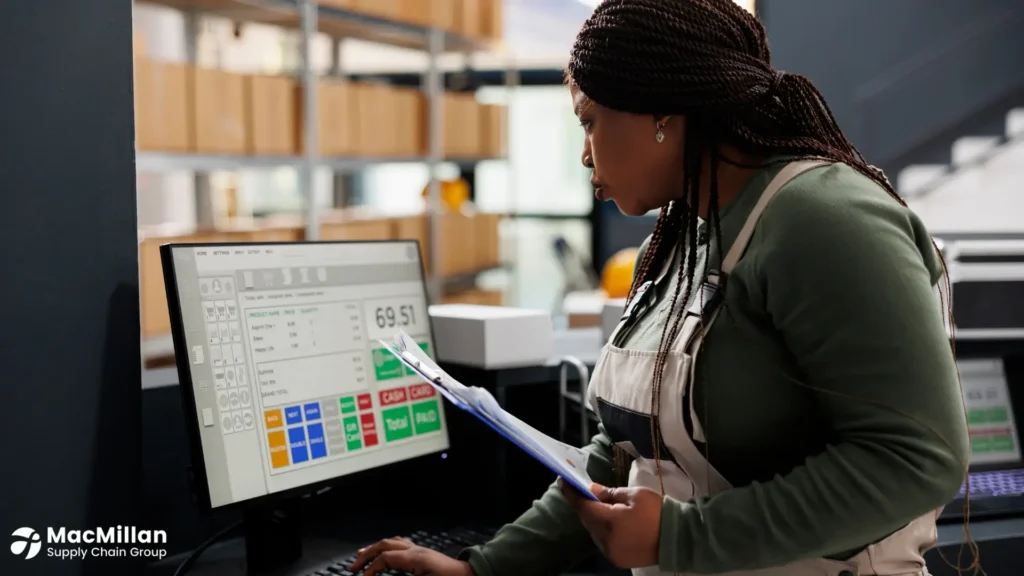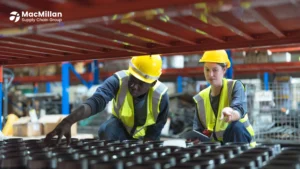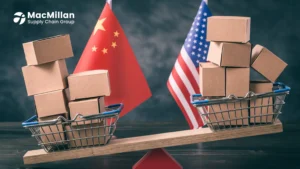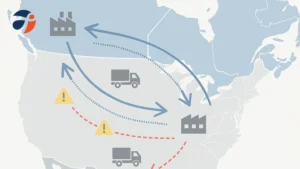Overview
The world of supply chains is changing fast and it’s not just about cutting costs anymore. Today, sustainable supply chain has moved from being a trendy catchphrase to a fundamental business imperative. Companies are now embracing renewable energy and using smart technology like artificial intelligence and the Internet of Things to create operations that are both efficient and eco-friendly. Let’s explore some of the exciting breakthroughs driving this change..
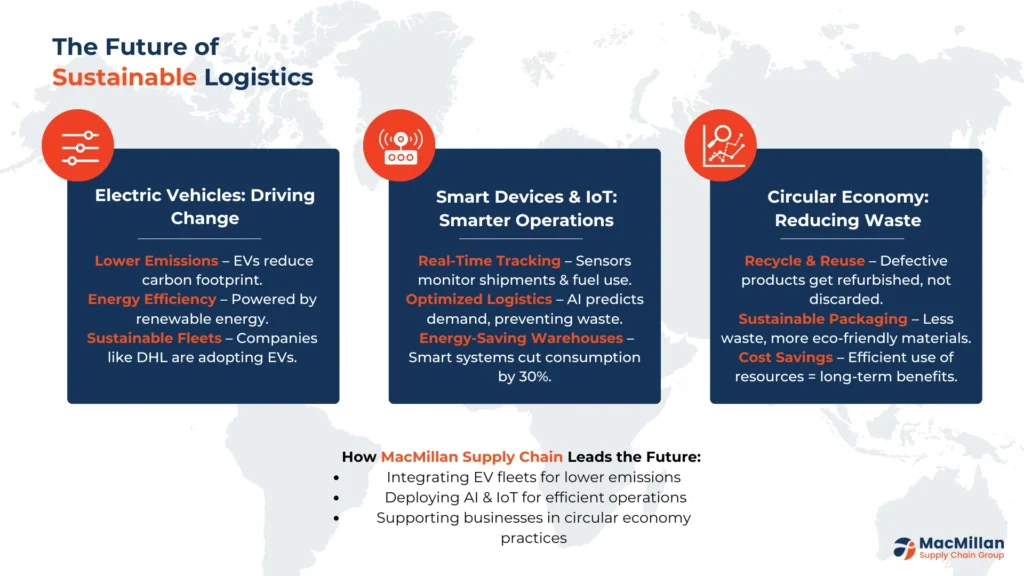
Introduction
In our modern world, being environmentally and socially responsible isn’t optionali t’s expected. Consumers and businesses are demanding that companies take steps toward sustainability. With the help of advanced technology and better resource management, businesses can now build supply chains that work smarter and greener. In this article, we’ll look at how AI, IoT, renewable energy, and circular economy principles are reshaping supply chains for a better, cleaner future
AI and IoT: A Perfect Pair for Better Efficiency
Imagine having a crystal ball that predicts what customers will need before they even ask. That’s what AI does for supply chains it helps forecast demand with surprising accuracy, ensuring that inventory levels are just right. Meanwhile, IoT devices act like digital guardians, providing real time updates and tracking the movement of goods. Together, they help companies reduce waste, cut down on costs, and lower their environmental impact.
For example, using AI to forecast demand means avoiding the pitfall of overproduction, and IoT sensors can keep an eye on energy usage in warehouses, making sure everything runs smoothly and sustainably. It’s a smart way to work and a smart way to protect our planet.
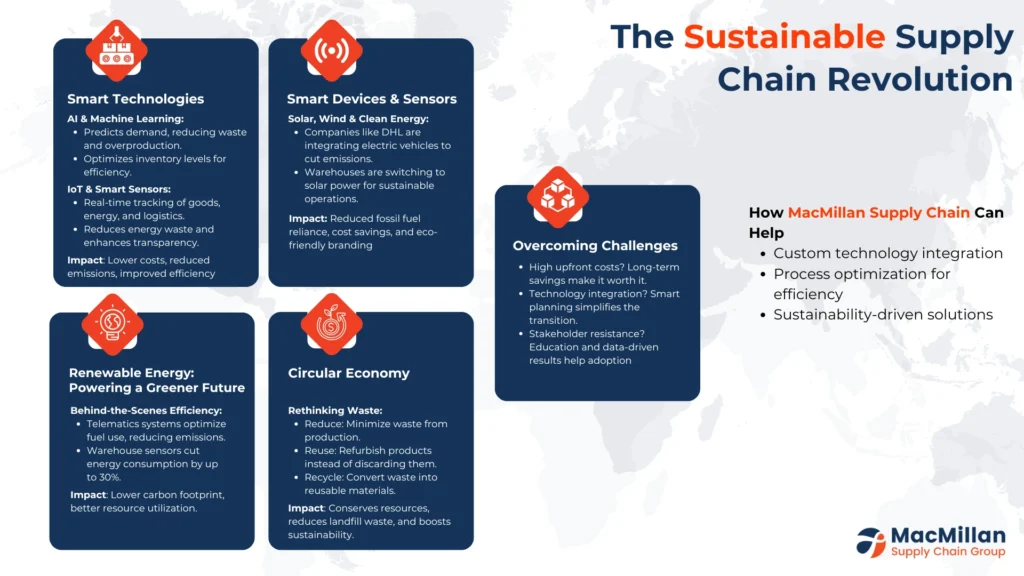
Renewable Energy: Powering a Greener Future
One of the biggest changes in the logistics world is the shift toward renewable energy. More companies are opting for solar, wind, and other clean energy sources to power their operations. Think about DHL’s move to integrate electric vehicles into their fleet, a step that has significantly reduced their greenhouse gas emissions.
This change isn’t just great for the environment; it also makes good business sense. By reducing reliance on fossil fuels, companies can save money in the long run and position themselves as true leaders in sustainability.
Smart Devices and Sensors: The Unsung Heroes
Often working behind the scenes, smart devices and sensors are making a big impact on supply chains. Take telematics systems, for example they offer real time insights into fuel consumption, driving behavior, and route optimization, all of which help reduce emissions and boost efficiency.
In warehouses, smart sensors are hard at work cutting energy consumption by up to 30%, which can make a significant difference in a company’s overall carbon footprint. While they may not always be in the spotlight, their role in driving sustainability is undeniable.
The Circular Economy: Rethinking Waste
At the heart of sustainable supply chains is the circular economy a concept that’s all about reusing, recycling, and reducing waste. Instead of throwing away defective products, companies can refurbish or repurpose them, creating a system that benefits both the environment and the bottom line.
By adopting practices that focus on sustainability from start to finish, businesses can conserve valuable resources and help build a more resilient economy. It’s about thinking long-term and being mindful of every step in the process.
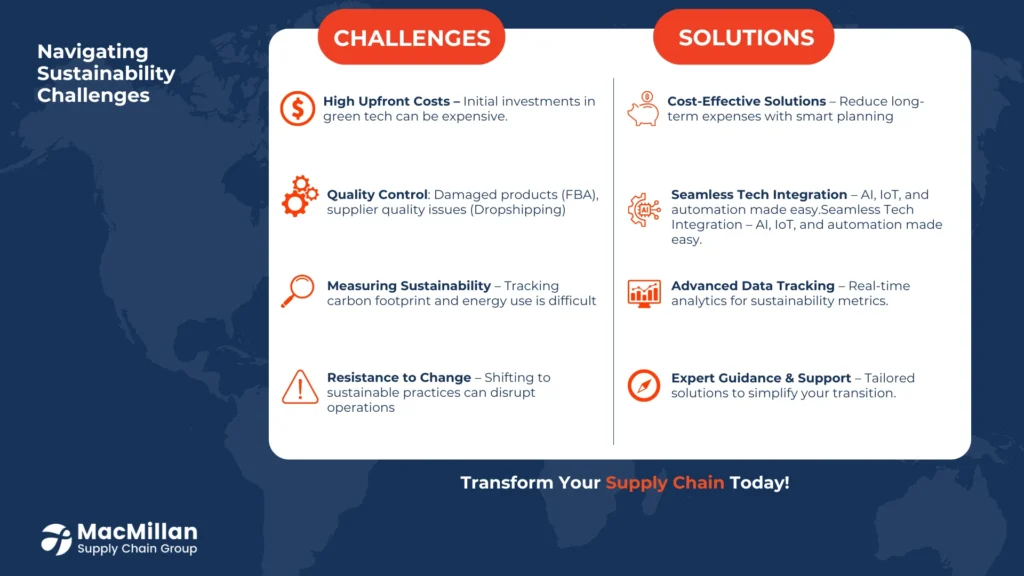
Challenges in Achieving Supply Chain Sustainability
Switching to a more sustainable supply chain isn’t always easy. The journey comes with its own set of challenges, such as high upfront costs, integrating new technologies, and keeping track of sustainability metrics. On top of that, change can be tough for everyone involved especially if stakeholders are used to doing things a certain way.
How MacMillan Supply Chain Can Help
At MacMillan Supply Chain, we understand that transitioning to sustainable practices can seem overwhelming. That’s why we’re here to help. Our team works closely with you to integrate technology, optimize processes, and offer guidance tailored to your needs. With our support, you can meet your sustainability goals without sacrificing efficiency.
Implementation and Next Steps
Ready to turn your supply chain into a model of sustainability? It all starts with aligning your sustainability goals with your overall business strategy. Working with experts like those at MacMillan Supply Chain can make the process much smoother. Reach out to us today, and let’s start building a greener future together.
FAQs
AI is like the smart brain of your supply chain, helping with everything from demand forecasting to optimizing inventory. It makes operations more efficient and cuts down on waste, which is key to a more sustainable business model.
Switching to renewable energy sources like solar and wind power helps reduce dependence on fossil fuels and lowers greenhouse gas emissions. This change not only benefits the environment but also results in long-term cost savings.
Electric vehicles are a game changer for reducing carbon emissions, especially in last mile delivery. They help companies reduce their environmental impact while also often cutting down on fuel costs.
Absolutely. Blockchain creates an unchangeable, decentralized record of every transaction and movement of goods. This transparency helps ensure ethical and sustainable practices throughout the supply chain.
3D printing can minimize the need for long distance transportation by enabling local manufacturing. This not only reduces carbon emissions but also cuts transportation costs and boosts supply chain agility.
Circular economy principles focus on reducing waste by reusing and recycling materials. This approach is vital for creating sustainable supply chains because it ensures that resources are used efficiently and kept in circulation for as long as possible.
Smart devices provide real time data that helps optimize processes like route planning and energy usage. This not only improves efficiency but also plays a significant role in reducing the environmental footprint of logistics operations.
Sustainable practices in the supply chain lead to ethical labor standards, respect for human rights, and fair trade. These efforts contribute to healthier communities and improve a company’s reputation as a socially responsible organization.
Embracing sustainability in your supply chain isn’t just a trend it’s a commitment to a better future for everyone. With the right tools and a focus on innovative technologies, businesses can not only improve their bottom line but also make a real difference for the planet. Let’s work together to build supply chains that are as sustainable as they are successful.
Contact MacMillan Supply Chain Group today for a free consultation
